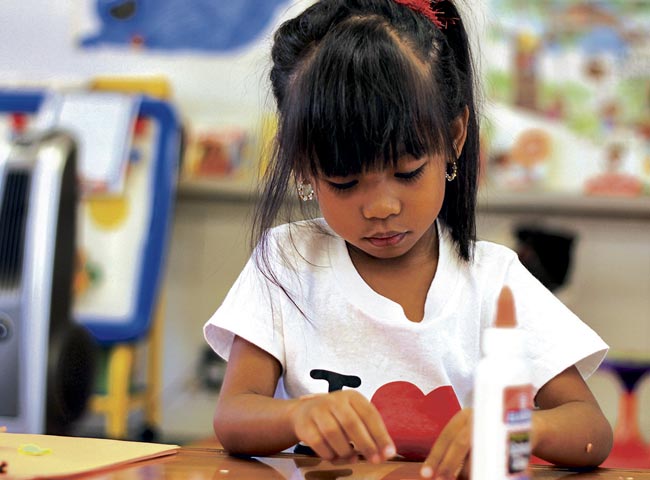Empowering Families And Communities
By Lisa Pakele, Keiki Steps program director, INPEACE
After the tragic loss of her husband to cancer, Waianae resident Adela Cabacungan became a widow and a single mother. She and her children were facing an uncertain future, but thanks to a friend who told Cabacungan about the Institute for Native Pacific Education and Culture’s (INPEACE) Keiki Steps program, she found a community of support.
mw-pp-10-03-12-02
“Keiki Steps was there when I needed support the most,” she says.
Keiki Steps, a free parent participation preschool for children up until age 5, supports families in becoming their child’s first teacher through culturally relevant activities that help children prepare for kindergarten.
Children who participate in Keiki Steps gain an average of 19 percentile points on a receptive vocabulary test after just nine months in the program. These gains take children from scoring below the national average to significantly exceeding it, and also serve as an indicator of reading success in third grade, which in turn correlates to an increase in high school graduation and college attendance rates.
Keiki Steps is just one of many programs offered by INPEACE that empowers families and supports higher education. Ho’ala canvasses neighborhoods to match families with early learning programs and services. Kupu Ola provides outdoor classrooms to support cultural-based education, and Kukuluao & Ka Lama Education Academy supports adults through the higher education process in pursuit of college degrees.
INPEACE was founded in 1994 to meet the educational needs of Native Hawaiian communities through partnerships.
Today, INPEACE focuses on early childhood education, workforce development and cultural land stewardship. Each of the seven programs offered by INPEACE aligns with one of these areas, and all share the values of community empowerment and cultural enrichment.
Studies have shown that culture-based education programs encourage community involvement, help strengthen relationships between families and teachers, and improve math and ready scores.
Cabacungan’s family is just one of many that have benefitted from INPEACE’s free programs, and the organization is working hard to increase funding so that we can support more families in more communities. The organization serves more than 4,500 children, families and students statewide.
If you are interested in donating to the organization or volunteering, please visit inpeace.org, email info@inpeace.org, or call 693-7222. We appreciate your help and generosity.






